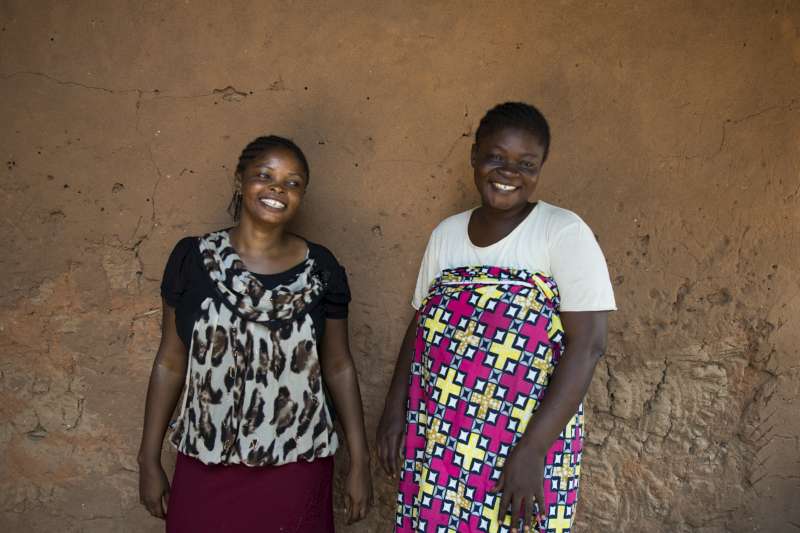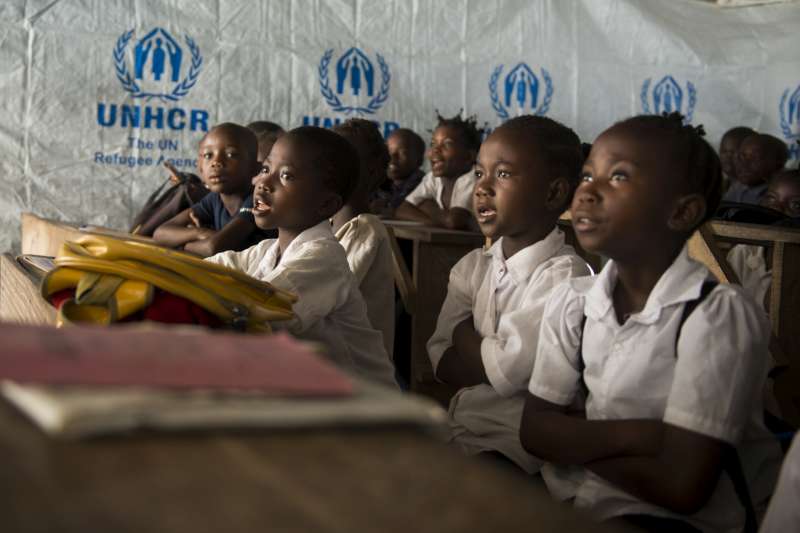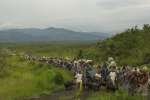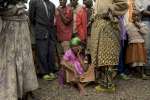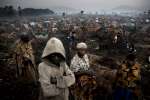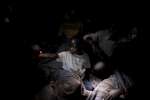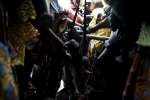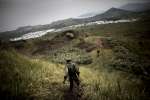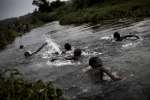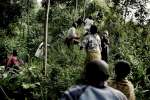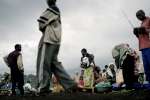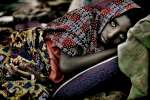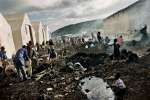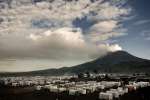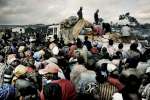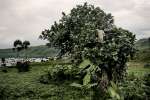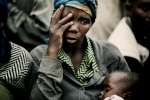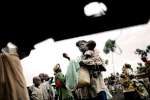- Text size
 |
|  |
|  |
| 
- عربي
Congo border town helps Central African neighbours in need
News Stories, 14 January 2016
ZONGO, Democratic Republic of Congo, Jan 14 (UNHCR) – When Congolese mother Blandine Ngeki fled for her life across the Ubangi River in 1999, she was taken in by Josephine Servis and her family in the Central African Republic. Now it is Ngeki's time to return the hospitality.
Driven out of the CAR capital Bangui last year after their house was burned down, the Servis family slipped across the broad, fast-flowing border river by canoe to this town in DRC, where Ngeki opened her small tin-roofed home to them all.
"We are Congolese. We always offer shelter to someone who had to flee," said Ngeki, who is among many in Zongo who are reaching out to share their homes with the refugees and provide access to key services including medical attention and education.
Since 2013 when rebel groups overthrew then-President François Bozizé, some 110,000 people have fled war in CAR and sought shelter in DRC, primarily along the Ubangi River which constitutes the border between the two countries. Most of them live in refugee camps, but about a third of the refugees stay with the local population.
As well as taking in Servis and her family, Ngeki is also looking after three orphan children. Meanwhile a neighbour, Mariam Youssuf, cares for two children from CAR, a boy aged one and a three-year-old girl. They were left in her care by their mother, who then went to recover some belongings from Bangui, where a tense calm has been punctuated by periodic clashes between rebel groups and government forces.
"The small one is often asking for his mom, he wants to see her. To make them happy, I sometimes buy sweets for them," Youssuf said. "If their mother does not come back, they can stay here. We will always have a few manioc leaves. We'll eat together," she said.
Zongo is far from unique. There are many other communities along the Ubangi River where Congolese residents are offering shelter and support on an ongoing basis to refugees from CAR, a third of whom have arrived during the past year.
The number of new arrivals now outstrips that of the local population in some places, particularly in remote zones which have only a few schools or health posts. UNHCR has been moving some of the refugees from far-off border areas to the five refugee camps in northern DRC, and also welcomes the Congolese help.
"The support shown by Congolese for the neighbours from CAR is exemplary. We should remember that this is one of the poorer regions in sub-Saharan Africa. Many of the hosts already live below the poverty line", said Stefano Severe, UNHCR's Regional Representative for Central Africa.
While the Refugee Agency's appeal for CAR is severely under-funded, "UNHCR is doing its best to help local communities in this situation, including those near the border and next to the refugee camps," he said
Among schools in Zongo that have stepped up to the challenge and taken in refugee children eager to continue their education is the Mohamad Primary School in Zongo, which has set up six new temporary classrooms.
"UNHCR gave us some plastic sheeting and benches. We have eight teachers," the school's manager, Abdulaye Livana said. "Only finding money for their salaries is not easy."
Meanwhile, at a health centre for children in the border town, refugees from CAR are among the mothers with infants waiting in line. Common diseases like malaria and diarrhea can easily kill a child if they are not treated, and the centre frequently subsidizes costs to help those in need.
"Sometimes, the refugees do not have much, and it can be less than the treatment would normally cost," said Jacob Wakanza, the manager of the centre, explaining the staff's motivation. "We try to help in the first place. We need to show solidarity. They are human beings."
By Andreas Kirchhof in the Democratic Republic of the Congo
